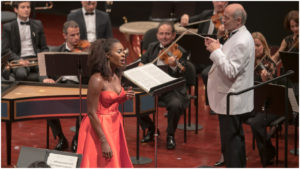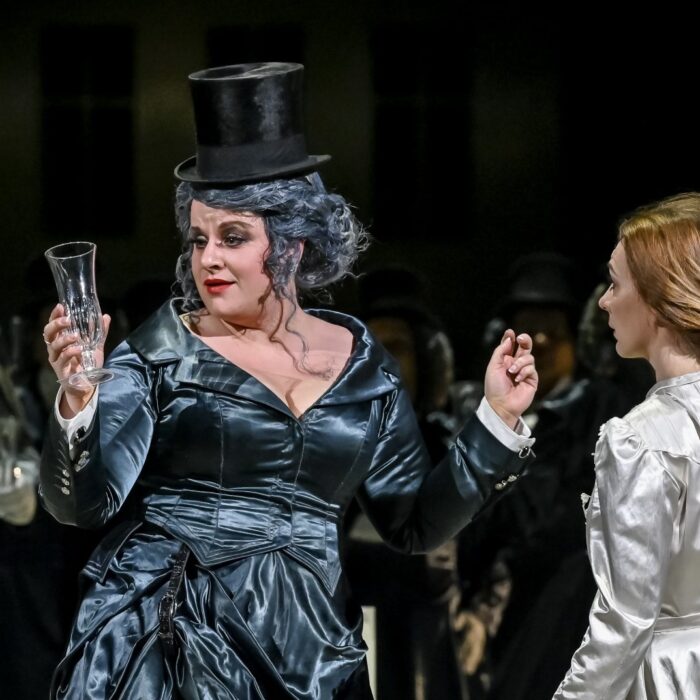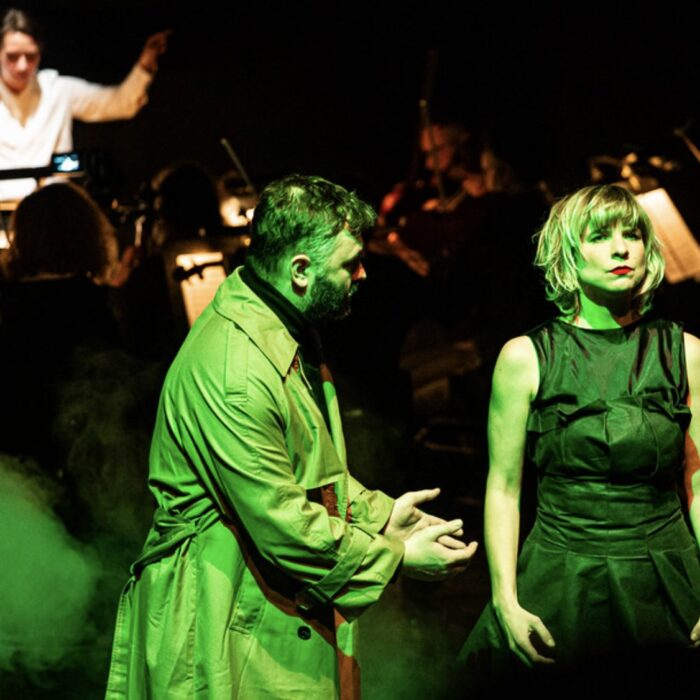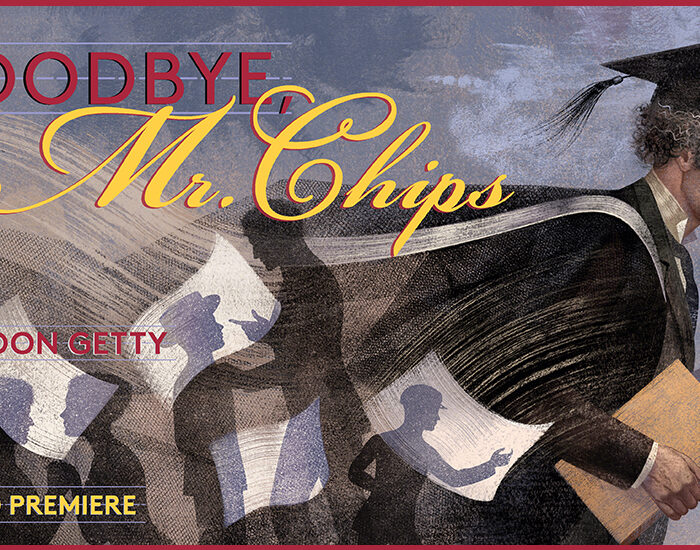
Mostly Mozart Festival 2019 Review: Soprano Jeanine De Bique & Budapest Festival Orchestra
De Bique Shines In Handel Arias, Flanked By Masterful Interpretations of Mozart & Haydn
By Logan Martell(Photo Credit: Kevin Yatarola)
On August 4, 2019, the Budapest Festival Orchestra brought their talents to David Geffen Hall for an exciting program of works by Handel, Haydn, and Mozart. Joining conductor Ivan Fischer and the orchestra was Trinidadian soprano Jeanine De Bique, making her debut performance with the Mostly Mozart Festival in spectacular fashion.
First, Haydn
Starting the evening’s program was Franz Joseph Haydn’s “Symphony No. 88 in G Major.” A stately atmosphere was quickly established by the strings before the orchestra demonstrated their flexibility in stops and starts, where sudden pauses gave way to velvety crescendos.
The opening of the Largo section was led by the oboe, with the orchestra soon erupting into a series of sforzandos which settled into an eerie calm. Fischer’s mastery in leading the orchestra saw expression in the meaningful breadth of gestures he used to express his musical intentions, pulling his body inwards as the orchestra followed to diminuendo, the steady forward thrust of his baton which resulted in a powerful, dissonant stings, and even jabbing in the direction of the violists as his right hand kept the beat.
The Allegro con spirito of the fourth movement started with a light energy that soon rose to a full and rich texture, showing a breathtaking precision which would be used to bring the first work of the night to a finish..
Handelian Soprano
Placed in the middle of the program were three arias by George Frideric Handel, sung by Jeanine De Bique. The first, “Disserratevi, o porte d’Averno,” comes from Handel’s oratorio “La resurrezione.”
De Bique’s heightened soprano quickly struck the double “r” in the word “disserratevi,” using the roll to establish a dramatic momentum that lasted through the number. The short text, ripe with evocative, religious imagery was illuminated at great length thanks to De Bique’s sense of breath and sharply- executed ornamentation.
Following this was “Ritorna, o caro e dolce mio tesoro,” from Handel’s opera “Rodelinda.” The more stately atmosphere conjured by the strings and harpsichord saw De Bique take a fittingly more relaxed approach, while not lacking in delivering a highly melismatic punch.
Finally was “Da tempeste il legno infranto,” from Handel’s “Giulio Cesare,” featuring repeated runs of colors which made an excellent showcase of De Bique’s vocal agility as she either closed phrases with a soaring flourish, or bring them to a full-bodied close before the orchestra’s ritornello. Her rapid-fire ornaments crescendoed to a sonorous height before she brought the number to a triumphant end, drawing tremendous applause.
Finally, Mozart
Finishing the concert was Mozart’s “Symphony No. 41, in C major,” also called the “Jupiter Symphony.” After quickly introducing the first of its themes, the orchestra deftly and gladly danced between power and a more relaxed maestoso. Diminishing to a tight concentration, a burst of massive sounds soon gave way to a brighter, spreading texture from the strings, contrasted by the legato of the winds. As Fischer gestured to bring forth the flute, its sustained tones reintroduced the rolling motif from the opening.
The Andante Cantabile was warmed by the rich presence of the cellos in the texture the rhythm seemed to lurch forward, being dotted by the driving bassoon.
The Molto Allegretto of the fourth movement saw a clean and heightened return of earlier material, with the rapid dialogue of the string and flute resulting in an exhilarating outpour, which ended the piece and elicited cheering and applause.
While only an hour long, this concert was made all the more potent by the Budapest Festival Orchestra’s wondrous sensitivity, and the stunning debutante that is Jeanine de Bique.
Upcoming engagements for this rising soprano include Susanna in “La Nozze di Figaro” with San Francisco Opera, “La Ressurrezione” with Les Nouveaux Carateres at Versailles and in Lyon, and Michaela in “Carmen” with Gran Teatre del Liceu; making for what will certainly be an exciting 2019-20 season.


